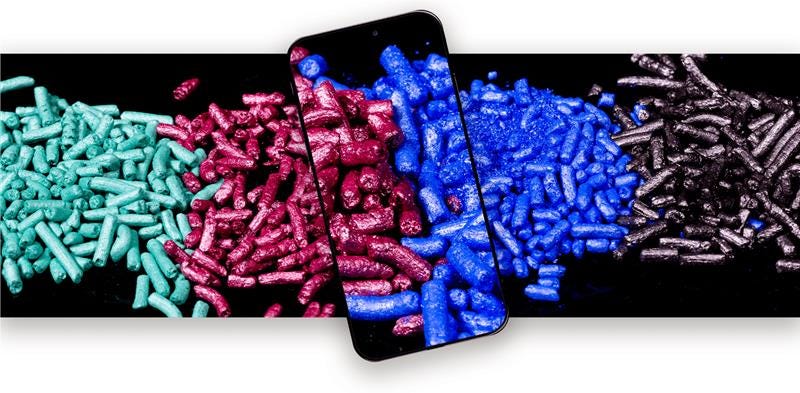5 Reasons Why Encapsulated Retinol Is Better for Your Skincare Formulations
Retinol, a derivative of Vitamin A, has earned its place as one of the most sought-after ingredients in skincare. Known for its powerful anti-aging and skin-renewing properties, it works to reduce the appearance of fine lines and wrinkles, improve skin texture, and promote collagen production for a firmer, more youthful complexion. Beyond its anti-aging benefits, Retinol helps to accelerate cell turnover, making it a favorite for addressing concerns like uneven skin tone, dullness, and blemishes. Its versatility and proven efficacy have made it a staple in countless formulations, from night creams to serums, cementing its reputation as a skincare powerhouse.
While Retinol is highly effective, traditional forms of the ingredient come with significant challenges for both formulators and end-users. One of the biggest hurdles is instability—Retinol degrades quickly when exposed to light, air, or heat, leading to reduced efficacy over time. This makes maintaining product performance and shelf life a constant struggle. Additionally, Retinol is notorious for causing skin irritation, such as redness, dryness, and peeling, particularly for those with sensitive skin or when used in high concentrations. For formulators, these drawbacks are compounded by formulation limitations, as Retinol can be difficult to incorporate into a wide range of products due to its solubility issues and sensitivity to environmental factors. These challenges underscore the need for innovative solutions like encapsulated Retinol to unlock its full potential.
What is encapsulated retinol?
Encapsulated Retinol is a cutting-edge advancement in skincare technology that enhances the delivery and effectiveness of traditional Retinol. By enclosing Retinol molecules in a protective coating or matrix, encapsulation helps shield the ingredient from environmental factors such as light, air, and heat, which can cause degradation. This process not only improves stability but also allows for a controlled, slow release of Retinol into the skin over time, minimizing irritation and making it suitable for a broader range of skin types. Encapsulation also offers greater formulation flexibility, enabling Retinol to be incorporated into diverse products, including serums, creams, and lotions, without compromising efficacy. For formulators, encapsulated Retinol provides a way to harness the powerful benefits of this ingredient while addressing its traditional challenges.
5 Reasons Encapsulated Retinol is a Must-Have for Your Formulations
Enhanced Stability
Retinol, while highly effective, is naturally unstable and prone to degradation when exposed to environmental factors like light, air, and heat. These elements break down the molecular structure of Retinol, diminishing its potency and reducing its effectiveness over time. This instability not only shortens the shelf life of products but also makes it challenging for formulators to maintain consistent performance. Without proper stabilization, Retinol’s benefits—such as promoting collagen production and reducing wrinkles—can be significantly compromised, leaving consumers with less impactful results. Encapsulation technology addresses this instability, offering a solution that preserves Retinol's integrity and ensures reliable performance in skincare formulations.
Encapsulation protects Retinol from degradation by enclosing the active ingredient within a protective barrier or matrix, shielding it from external factors like light, air, and heat. This protective layer acts as a physical and chemical barrier, preventing oxidation and preserving the Retinol’s molecular structure until it is applied to the skin. This not only enhances the ingredient’s stability and shelf life but also ensures that the end product remains effective and reliable for consumers over time.
Reduced Irritation and Improved Tolerability
Traditional Retinol, despite its powerful benefits, is notorious for causing skin irritation, especially in its pure form or at higher concentrations. Common side effects include redness, peeling, dryness, and increased sensitivity, which can make it challenging for people with sensitive or reactive skin to incorporate Retinol into their routines. This irritation often occurs because Retinol stimulates skin cell turnover at a rapid pace, which can overwhelm the skin's barrier and lead to discomfort. These challenges not only limit the audience for Retinol-based products but also present difficulties for formulators trying to create effective yet gentle formulations. Encapsulation technology helps address these issues by offering a controlled release of Retinol, significantly reducing the risk of irritation while still delivering its benefits.
Encapsulated Retinol reduces the likelihood of irritation by creating a protective barrier around the Retinol molecule, which minimizes direct contact with the skin's surface during application. This barrier helps buffer the Retinol, preventing it from overwhelming the skin and causing common side effects like redness, dryness, and peeling. The encapsulation also stabilizes the Retinol, ensuring that it maintains its efficacy without breaking down into potentially irritating byproducts. By reducing the intensity of Retinol's interaction with the skin, encapsulation allows for a gentler experience, making it more suitable for sensitive skin types and broader consumer use.
Versatility in Formulation
Encapsulated Retinol offers exceptional formulation versatility by remaining soluble in a variety of cosmetic bases, whether water- or oil-based. This flexibility is a result of the encapsulation process, which modifies the Retinol’s solubility profile, making it easier to incorporate into diverse formulations. Traditional Retinol often presents challenges due to its limited compatibility with certain bases, but encapsulated Retinol overcomes these barriers, allowing formulators to create innovative products like lightweight serums, rich creams, and even aqueous gels. This adaptability streamlines the formulation process, enabling the development of products tailored to different textures, consumer preferences, and application needs.
Encapsulated Retinol, such as BioGenic Gentinol-200UP, offers excellent flexibility in formulations with recommended use levels ranging from 0.5% to 2%. This wide range allows formulators to tailor their products to meet specific performance goals, whether creating gentle formulations for sensitive skin or more potent products for advanced anti-aging treatments. The lower end of the spectrum (0.5%) is ideal for beginners or daily-use products, while concentrations up to 2% deliver more intensive benefits for targeted skincare solutions. This versatility ensures that encapsulated Retinol can seamlessly integrate into a variety of products, from lightweight serums to rich creams, while maintaining efficacy and consumer safety.
Higher Efficacy Through Targeted Delivery
Encapsulation ensures Retinol reaches deeper layers of the skin before activation by enclosing the Retinol molecule in a protective barrier that prevents premature breakdown on the skin's surface. This barrier allows the encapsulated Retinol to bypass the outermost layer of the skin, reducing direct exposure and ensuring it remains intact as it penetrates deeper into the epidermis. Once it reaches its target layers, the encapsulation gradually dissolves, releasing the Retinol in its active form where it is most effective. This targeted delivery enhances efficacy by maximizing Retinol’s impact on collagen production, cell turnover, and wrinkle reduction while minimizing surface irritation.
Free Retinol formulations often face significant challenges, including rapid degradation and uneven absorption. When exposed to light, air, and heat, free Retinol quickly loses its potency, reducing its effectiveness long before it can deliver noticeable results. Additionally, free Retinol can absorb unevenly into the skin, with some areas receiving too much and others too little, leading to inconsistent results and increased risk of irritation. In contrast, encapsulated Retinol offers enhanced stability and controlled delivery, ensuring that the active ingredient retains its potency and is absorbed uniformly across the skin. This not only maximizes the Retinol’s effectiveness but also provides a gentler and more consistent experience for the user.
Consumer-Friendly Benefits
Encapsulated Retinol, like BioGenic Gentinol-200UP, aligns perfectly with clean beauty trends by prioritizing gentle, effective formulations without compromising on performance. With reduced irritation and the absence of harsh additives such as BHA, it caters to the growing demand for skincare products that are both high-performance and skin-friendly. Consumers are increasingly seeking ingredients that deliver results while respecting the skin’s natural balance, and encapsulated Retinol provides just that. By offering a stabilized and gentle alternative, Gentinol-200UP enables formulators to create innovative products that meet clean beauty standards while delivering the proven benefits of Retinol.
Formulation Tips for Encapsulated Retinol
Best Practices for Incorporating Encapsulated Retinol into Formulations
- Understand Stability Requirements: Encapsulated Retinol, though more stable than free Retinol, still requires proper handling. Use airless packaging or opaque containers to further protect the ingredient from environmental exposure during storage and in the final product.
- Temperature Considerations: Avoid exposing encapsulated Retinol to high temperatures during production, as excessive heat can compromise the integrity of the encapsulation.
- Optimal pH Range: Formulate within the ideal pH range for encapsulated Retinol (typically between 5.0 and 6.5) to ensure stability and efficacy.
- Recommended Use Levels: Follow the suggested use level (e.g., BioGenic Gentinol-200UP at 0.5–2%) to balance performance and skin tolerability.
Pairing Encapsulated Retinol with Complementary Actives
- Hydrating Agents: Combine encapsulated Retinol with ingredients like hyaluronic acid or glycerin to counteract potential dryness and maintain the skin's moisture barrier.
- Peptides: Pair with peptides to amplify collagen production and improve skin elasticity, creating a powerful anti-aging formulation.
- Soothing Ingredients: Include calming actives like allantoin, bisabolol, or panthenol to further reduce the risk of irritation.
- Antioxidants: Add antioxidants such as Vitamin E or niacinamide to boost skin protection against free radicals and complement Retinol's rejuvenating effects.
Avoiding Common Pitfalls in Formulation Stability and Efficacy
- Overheating During Production: High temperatures can weaken the encapsulation and degrade Retinol. Always add encapsulated Retinol at the cooling phase of formulation, below 40°C.
- Incompatible Ingredients: Avoid mixing encapsulated Retinol with highly acidic or alkaline ingredients, as extreme pH levels can destabilize the encapsulation.
- Improper Packaging: Use airtight and light-protective packaging to maintain Retinol’s stability post-production.
- Excessive UV Exposure: Ensure the final product includes UV-blocking ingredients or package instructions advising nighttime use, as Retinol can degrade with UV exposure.
- Skipping Compatibility Testing: Conduct thorough stability testing to ensure that the encapsulated Retinol remains effective and compatible with the other ingredients in your formula over time.
BioGenic Gentinol-200UP is designed to meet the unique needs of formulators by addressing the common challenges associated with traditional Retinol. Its advanced encapsulation technology ensures exceptional stability, protecting Retinol from light, air, and heat, which helps maintain potency throughout the product's shelf life. The ingredient’s versatility allows it to seamlessly integrate into a wide range of cosmetic bases, from lightweight serums to rich creams, offering endless possibilities for innovative formulations. Additionally, Gentinol-200UP provides superior effectiveness by minimizing irritation, improving absorption, and delivering consistent results, making it suitable for even sensitive skin formulations.
With its clean beauty appeal—free from harsh additives like BHA—and use level flexibility (0.5–2%), Gentinol-200UP empowers formulators to create cutting-edge products that align with consumer demand for high-performance, skin-friendly solutions.
Ready to see the difference? Contact us today for more information or request a sample of BioGenic Gentinol-200UP to experience the benefits firsthand!



